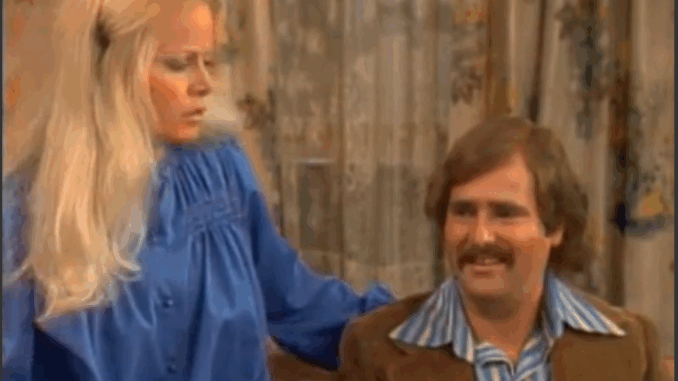
All in the Family was never afraid to go there—to poke, provoke, and peel back the layers of American culture. The episode titled “’H’ Say Can You See” stands out as one of the most thought-provoking entries in the series, confronting racial and cultural stereotypes head-on in a way only All in the Family could.
The Plot: A Misunderstanding with Deeper Meaning
In this episode, Archie Bunker finds himself in an unexpected situation when he shares a hospital room with a man named Mr. H. The twist? Archie assumes, based on the man’s appearance and accent, that he is of Middle Eastern or Asian descent—only to later discover that Mr. H is, in fact, a Jewish man from the Bronx.
Archie’s prejudices and snap judgments are put on full display, but so is his discomfort when those assumptions are proven wrong. Through awkward dialogue, sharp humor, and moments of surprising insight, the episode dissects how people often judge based on looks, names, or accents—without ever stopping to listen.
Why This Episode Still Resonates
-
Exploring Cultural Assumptions: The title itself—“’H’ Say Can You See”—is a play on a mispronunciation of the U.S. national anthem, which highlights themes of belonging, identity, and misunderstanding.
-
Archie at His Most Unfiltered: This episode lays bare the raw, unedited version of Archie. But it also reveals the fragility behind his worldview.
-
Conversation Starter: The episode forces viewers to reflect on their own assumptions, biases, and how easy it is to misjudge people based on superficial cues.
Performances That Drive the Message
Carroll O’Connor shines as always, balancing Archie’s ignorance with just enough self-doubt to make the character compelling rather than cartoonish. The guest star playing Mr. H delivers a calm, intelligent counterpoint—never angry, but always in control of the conversation. Their dynamic becomes a battle not of shouting, but of dignity versus ignorance.
Cultural Impact
When ‘H’ Say Can You See aired, it was a bold move. It challenged viewers to look beyond stereotypes and question the foundation of their beliefs. In today’s climate of increased awareness around cultural sensitivity and unconscious bias, the episode remains startlingly relevant.